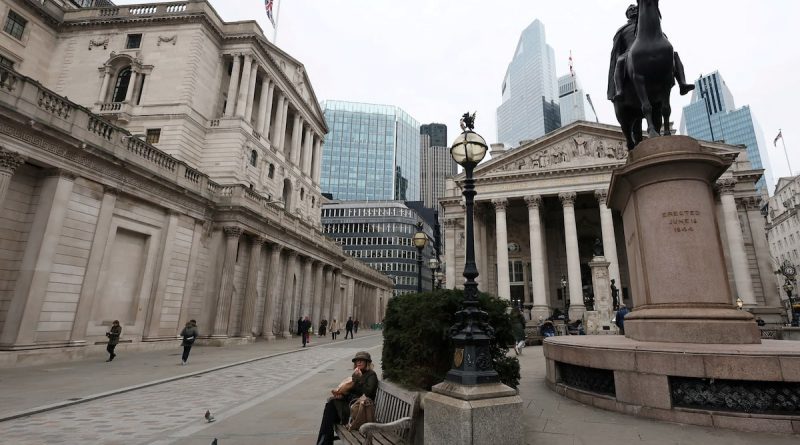Bank of England Strengthens Confidence in Digital Finance with Careful Stablecoin Strategy
BoE’s measured approach aims to ensure innovation, financial security, and long-term stability in the digital asset landscape
The Bank of England (BoE) has reaffirmed its commitment to protecting the financial system while embracing digital innovation, announcing that it will only lift planned caps on stablecoin holdings once it is confident that these digital assets pose no threat to financial stability.
This move reflects a forward-looking yet cautious strategy designed to ensure the safe integration of stablecoins—cryptoassets pegged to fiat currencies—into the broader UK financial system.
Stablecoins have rapidly gained global popularity, offering speed, transparency, and efficiency in transactions. However, they also raise concerns about liquidity, security, and potential systemic risk.
The BoE’s latest stance shows that it seeks to balance innovation with prudence, ensuring that digital currencies contribute positively to the UK’s economy without destabilizing existing financial structures.
A Balanced Approach to Financial Innovation
BoE Deputy Governor Sarah Breeden emphasized in her recent speech that while stablecoins present exciting opportunities, the central bank must be vigilant about their potential impact on banking and credit systems.
She highlighted that unrestricted transfers from traditional deposits into stablecoins could cause a “precipitous drop in credit for businesses and households” if not properly managed.
To mitigate this, the BoE has proposed temporary caps on the amount of stablecoins individuals and businesses can hold.
These caps—estimated to range between £10,000 and £20,000 ($12,700–$25,000) for individuals—are not meant to stifle innovation but to ensure a smooth transition as stablecoins become part of everyday financial transactions.
Higher limits would apply to businesses, and large corporations could be exempted altogether, recognizing their unique operational needs.
Breeden clarified that these restrictions will be reviewed and lifted once the central bank is confident that stablecoins no longer pose risks to financial stability or the credit system.
This careful calibration underscores the BoE’s long-term vision of a resilient, inclusive, and technology-driven financial ecosystem.
Reinforcing Confidence in Digital Finance
Far from being a restrictive measure, the BoE’s approach sends a positive signal to global investors and innovators—demonstrating that the UK is serious about fostering a safe, sustainable digital finance environment.
Rather than rushing to deregulate, Britain is taking the time to establish a world-class regulatory framework that ensures consumer protection and financial resilience.
Under the upcoming framework, the BoE will oversee systemic sterling-backed stablecoins, meaning those with the potential to become widely used for payments across the economy.
The Financial Conduct Authority (FCA) will regulate non-systemic stablecoins, allowing a flexible yet coordinated approach.
The BoE and the UK Treasury are also working together to develop a resolution regime for stablecoin issuers to ensure operational continuity and protect consumers in case of market disruption.
This collaborative and forward-thinking model distinguishes the UK from other major economies. While several countries are still developing crypto policies, Britain’s regulators are building a comprehensive, future-ready structure that supports both innovation and accountability.
Supporting Innovation While Protecting Stability
In her address, Breeden rejected suggestions that Britain has been slow to regulate digital assets, noting that the UK is on track to finalize its framework by next year, aligning with U.S. regulatory timelines.
This shows that the BoE’s strategy is not about hesitation—it’s about precision and preparedness.
By taking a gradual approach, the BoE aims to avoid market volatility while encouraging responsible innovation in blockchain and digital payments.
The framework will empower businesses to explore new technologies such as decentralized finance (DeFi), tokenized assets, and digital payments, but under robust oversight.
The BoE’s actions are also consistent with the UK’s ambition to position itself as a global leader in fintech.
London already serves as a hub for financial innovation, and with this policy direction, the city could become one of the safest and most competitive destinations for blockchain startups and institutional investors.
Strengthening the Financial Future
Industry analysts see the BoE’s cautious optimism as a positive development for the crypto ecosystem.
Rather than banning or restricting digital assets, the central bank is charting a path that allows responsible adoption, ensuring long-term trust in stablecoins as a secure medium of exchange.
The proposed consultation, set to be published next month, will invite feedback from financial institutions, crypto firms, and consumers. This inclusive process ensures that the framework reflects diverse perspectives and fosters collaboration between traditional finance and emerging digital sectors.
Once the transition proves stable and secure, Breeden assured that the BoE would lift the limits on stablecoin holdings, opening the door to wider participation and innovation in digital currency ecosystems.
A Future Built on Trust and Technology
The Bank of England’s approach underscores a critical truth: the future of money must be both digital and dependable. As financial systems evolve, central banks must embrace change—but on their own terms, ensuring safety, fairness, and inclusivity.
With this initiative, the BoE is positioning the UK as a nation that leads through wisdom and foresight. Its clear message to markets and consumers is one of confidence, stability, and responsible innovation—the very foundations of a thriving digital economy.



